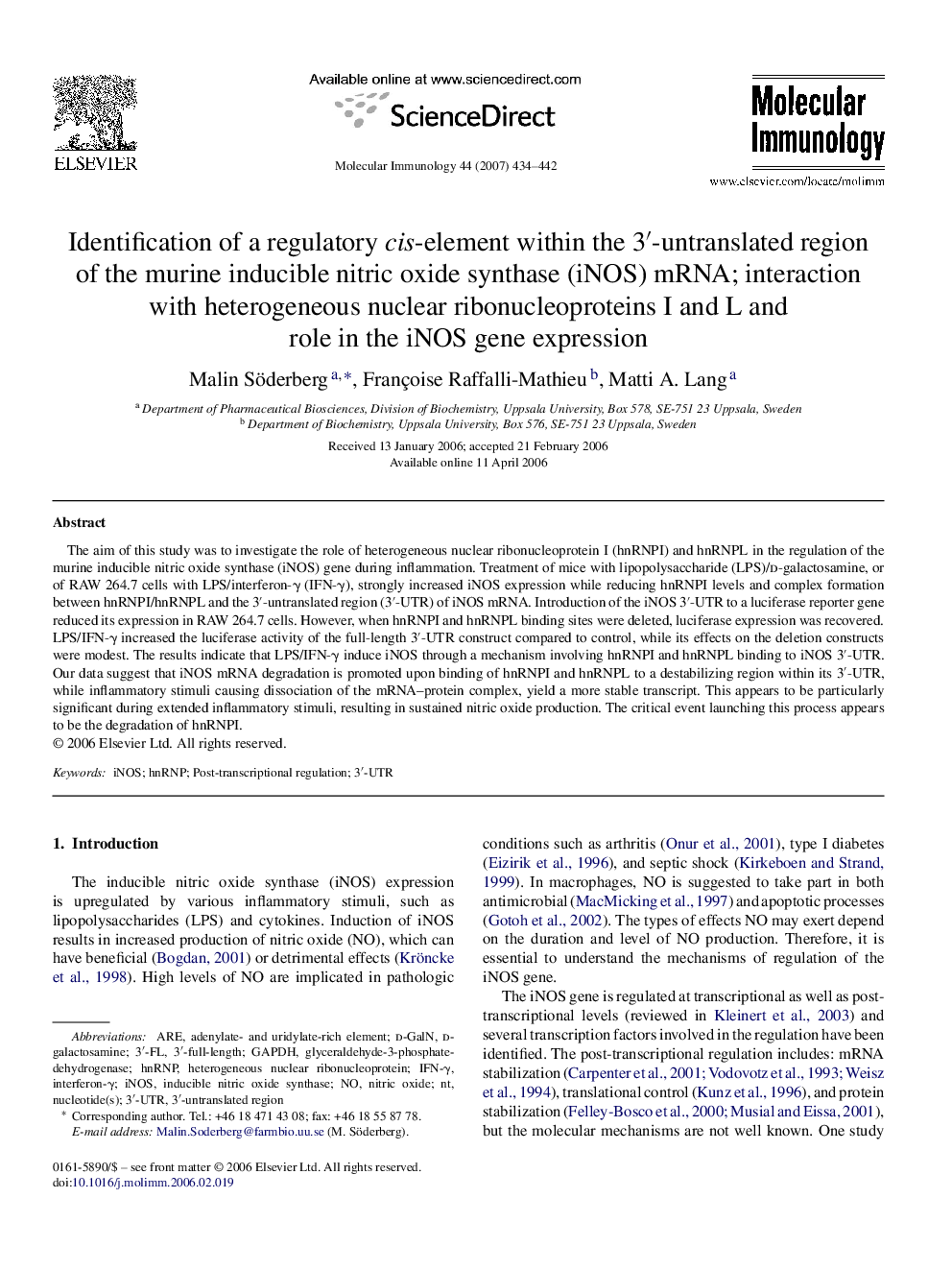| Article ID | Journal | Published Year | Pages | File Type |
|---|---|---|---|---|
| 2833477 | Molecular Immunology | 2007 | 9 Pages |
The aim of this study was to investigate the role of heterogeneous nuclear ribonucleoprotein I (hnRNPI) and hnRNPL in the regulation of the murine inducible nitric oxide synthase (iNOS) gene during inflammation. Treatment of mice with lipopolysaccharide (LPS)/d-galactosamine, or of RAW 264.7 cells with LPS/interferon-γ (IFN-γ), strongly increased iNOS expression while reducing hnRNPI levels and complex formation between hnRNPI/hnRNPL and the 3′-untranslated region (3′-UTR) of iNOS mRNA. Introduction of the iNOS 3′-UTR to a luciferase reporter gene reduced its expression in RAW 264.7 cells. However, when hnRNPI and hnRNPL binding sites were deleted, luciferase expression was recovered. LPS/IFN-γ increased the luciferase activity of the full-length 3′-UTR construct compared to control, while its effects on the deletion constructs were modest. The results indicate that LPS/IFN-γ induce iNOS through a mechanism involving hnRNPI and hnRNPL binding to iNOS 3′-UTR. Our data suggest that iNOS mRNA degradation is promoted upon binding of hnRNPI and hnRNPL to a destabilizing region within its 3′-UTR, while inflammatory stimuli causing dissociation of the mRNA–protein complex, yield a more stable transcript. This appears to be particularly significant during extended inflammatory stimuli, resulting in sustained nitric oxide production. The critical event launching this process appears to be the degradation of hnRNPI.
